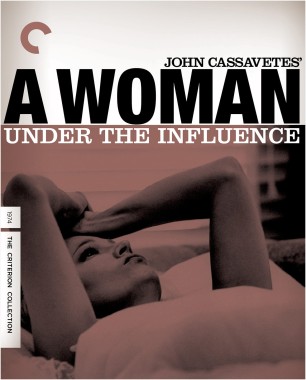
Nina Menkes’s Top10
Nina Menkes is a filmmaker whose works radically synthesize inner dream worlds with brutal outer realities. Her films have screened at major international film festivals, including Sundance, the Berlinale, Locarno, and Toronto. Menkes’s narrative films include Magdalena Viraga, Queen of Diamonds, and The Bloody Child, and all of her narrative works will be restored and made available on Blu-ray via Arbelos in 2023. Her documentary Brainwashed, which unpacks the male gaze in cinema history, was released by Kino Lorber in October.
Photo by Ann Johansson
-
1
Andrei Tarkovsky
Andrei Rublev
The first three times I saw Andrei Rublev, I wept during the final scenes, when the boy creates the giant bell. He is penniless and has no precise idea what he is doing, pragmatically, but he connects intuitively to a core spiritual part of himself and to the materials that will become the bell, and manages to succeed in making it. With stellar performances and meaningful, beautiful cinematography, the film explores the profound struggle and illuminating glory of following one’s artistic vocation.
-
2
Carl Th. Dreyer
The Passion of Joan of Arc
The Passion of Joan of Arc still stuns almost a century after it was made because its spiritual power transcends time. The film’s political meaning is so acute thanks to Dreyer’s attunement to the sexism of the ecclesiastical jurists and their jealousy of Joan. His deep sympathy for her position as a woman and her calling is incredibly moving. And it’s all accomplished without sound.
-
3
Agnès Varda
Vagabond
This is my favorite film by Agnès Varda—and one of my favorite films, period. Vagabond concerns a beautiful young woman who refused to conform to any of the expectations that were imposed upon her life and spirit. Sandrine Bonnaire’s performance is so real, and everything about how the film is constructed—the way it seamlessly melds documentary and narrative elements—leaves us feeling as though we’ve witnessed the actual life and death of this woman.
-
4
Federico Fellini
La dolce vita
The first time I saw La dolce vita was on VHS, when it came out at my local video store in the late eighties, and I voraciously watched it five times in a row. Fellini’s masterful filmmaking integrates the politics and glittering emptiness of celebrity (still precisely on point today), while simultaneously creating a riveting, beautiful cinematic world with a perfect balance of pain and humor. And who can forget the final scene with the tragic monster from the sea, who speaks our deepest truth without words.
-
5
Barbara Loden
Wanda
Like Vagabond, Loden’s iconic Wanda is about a drifter, a woman who has rejected all the things that were expected of her but has found nothing satisfactory to take their place. She is female, uneducated, and broke, and her options are severely limited. With beauty hanging around her neck like a ball and chain, she tries to navigate impossible choices with a silent pain that is devastating.
-
6
Robert Bresson
Au hasard Balthazar
My favorite Bresson film, Au hasard Balthazar, takes us into the perspective of a donkey, an innocent animal constantly subjected to the random cruelties of the selfish and petty human beings who surround and control him. It’s hard to think of a more moving film about sacrifice and surrender, understood in a subtle yet profound way. The main character, the donkey Balthazar, carries our own hurt and loneliness far more powerfully than most human actors, all the way through to his death: possibly the most incredible moment ever captured on film.
-
7
Chantal Akerman
Jeanne Dielman, 23, quai du Commerce, 1080 Bruxelles
When I saw this movie for the first time I was blown away, amazed, and relieved. Here was a film director—Chantal Akerman—who reflected my own experiences and feelings so precisely: feelings I had about being a woman, about cinema, and about how those two things might go together. The rigor of the cinematography and the editing, as well as Akerman’s refusal to compromise in showing the ways the protoganist is caught in the steel trap of “femininity,” created an instant classic and made me feel much less alone.
-
8
Catherine Breillat
Fat Girl
Fat Girl attacks the image/concept of “beautiful young woman” and the romantic tropes that have been the cornerstone of sexist cinema for over a century. With cruel precision, Catherine Breillat obliterates the male gaze and allows us to experience the world through the eyes of the “fat girl”—an extremely astute, highly intelligent, overweight thirteen-year-old. Her deeply skeptical view on everything that has been forced down her throat in regards to sex, pleasure, male and female role acting, and “romance” is invigorating.
-
9
Lucrecia Martel
La Ciénaga
This film is astounding in its creation of a cinematic world unlike anything else. Through fluid camera work and a surreal use of sound, Lucrecia Martel leads us into the life of a family whose swirling dysfunction has political undertones, which make the experience of watching this film both more real and more unbearable. La Ciénega explores an emotional vortex where there are few healthy emotional boundaries, and we start to suffocate in a murky swamp along with the characters—both literally and metaphorically.
-
10
John Cassavetes
A Woman Under the Influence
Gena Rowlands is wonderful in this heartbreaking depiction of a woman trying to survive emotionally while being gaslit by her sexist environment. The psychic and social ruptures that are revealed though her daily struggles, and the impossibility of her situation, from which there is apparently no exit, conveyed through Cassavetes’s vérité style of the shooting, all stand the test of time.














